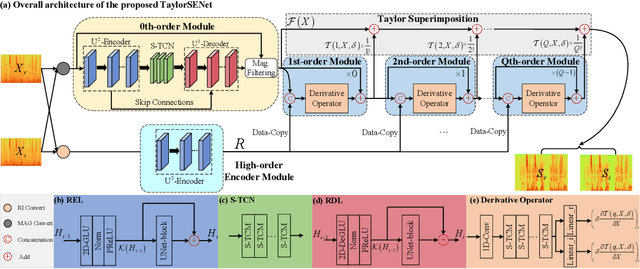Taylor, Can You Hear Me Now? A Taylor-Unfolding Framework for Monaural Speech Enhancement
Paper and Code
Apr 30, 2022



While the deep learning techniques promote the rapid development of the speech enhancement (SE) community, most schemes only pursue the performance in a black-box manner and lack adequate model interpretability. Inspired by Taylor's approximation theory, we propose an interpretable decoupling-style SE framework, which disentangles the complex spectrum recovery into two separate optimization problems \emph{i.e.}, magnitude and complex residual estimation. Specifically, serving as the 0th-order term in Taylor's series, a filter network is delicately devised to suppress the noise component only in the magnitude domain and obtain a coarse spectrum. To refine the phase distribution, we estimate the sparse complex residual, which is defined as the difference between target and coarse spectra, and measures the phase gap. In this study, we formulate the residual component as the combination of various high-order Taylor terms and propose a lightweight trainable module to replace the complicated derivative operator between adjacent terms. Finally, following Taylor's formula, we can reconstruct the target spectrum by the superimposition between 0th-order and high-order terms. Experimental results on two benchmark datasets show that our framework achieves state-of-the-art performance over previous competing baselines in various evaluation metrics. The source code is available at github.com/Andong-Lispeech/TaylorSENet.
 Add to Chrome
Add to Chrome Add to Firefox
Add to Firefox Add to Edge
Add to Edge